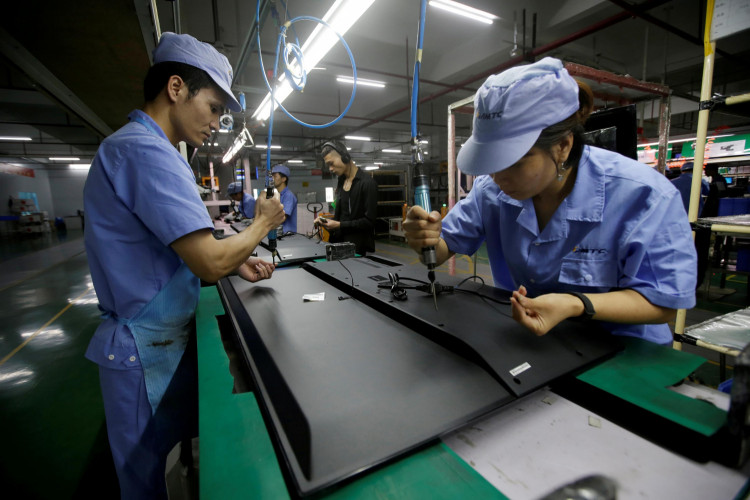Whether or not Beijing and Washington strike a trade deal, China is already stepping up efforts to break its dependence on a nation that is one of its biggest economic allies -- but also its biggest foe.
After more than a year and a half of prolonged negotiations, painful tariffs and US sanctions against leading Chinese technology companies, the effort has gained greater urgency for Beijing.
Negotiators are moving towards a possible "step one" settlement, but if US President Donald Trump is going through a tariff hike on Sunday, tensions could escalate again.
Chinese companies are looking for new markets to prepare themselves for potential levies or political shocks, adjusting supply chains, sourcing home-grown components, and switching to domestic suppliers.
Rising To The Challenge
In May, Chinese leader Xi Jinping released his own order calling for self-reliance on "primary core technologies" while warning of a "Long March" toward foreign rivals, a reference to China's Communist Revolutionaries' now-legendary strategic retreat in 1934-35.
A director surnamed Liang at Weipai Industrial Ltd, a tablet computer manufacturer in Shenzhen's southern tech hub disclosed the company was diversifying supply chains to minimize reliance on U.S. parts and searching for a Chinese company to supply semiconductors.
But other companies had to reconsider their plans as well. A sales executivve surnamed Lu at fabric exporter Zhejiang Zhuang En said they were targeting European and African fashion brands instead after deliveries to the US almost halved this year.
Samm Sacks, China's fellow in the digital economy at the New America think tank, said the trade war "has added fuel to the fire of the Chinese government's aspirations to replicate industries inside China that they had outside the world in the past."
On Decoupling And Delaying
Joerg Wuttke, chairman of the EU Chamber of Commerce in China, said the two countries were in the process of "decoupling", a concept that has emerged frequently during the trade war. "China realized it could not rely on some of the foreign suppliers," Wuttke told reporters.
According to people familiar with the talks, Chinese officials expect US President Donald Trump to postpone a proposed tariff increase scheduled for Sunday, giving more time to negotiate an interim trade agreement that both sides continue to insist is close to fruition given a series of deadlines.
Meanwhile, companies in electronics and engineering are at the forefront of China's push to self-sufficiency. In August, Chinese tech giant Huawei launched its own Harmony OS operating system, facing the threat of losing access to Android systems as tensions escalate between China and the US.






